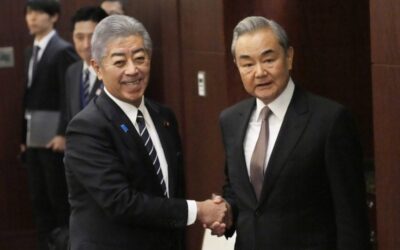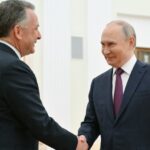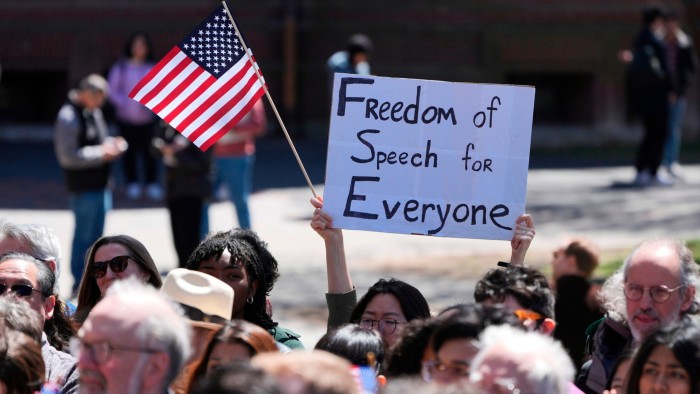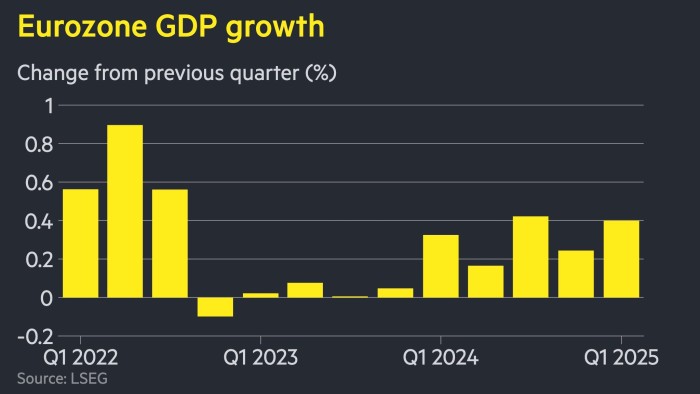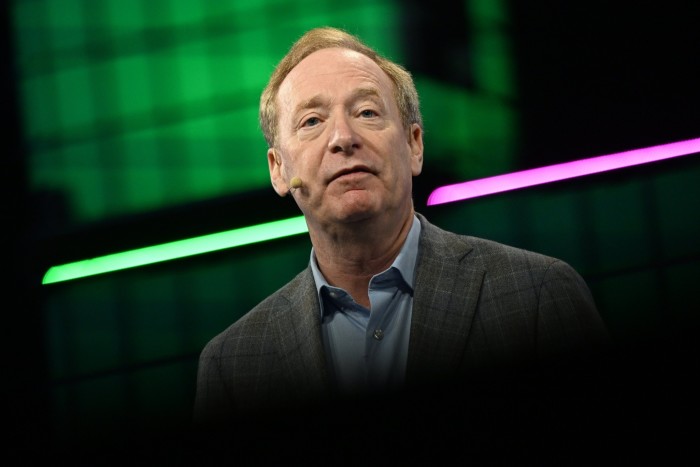Mark Carney prepares for Trump talks after Canada poll win
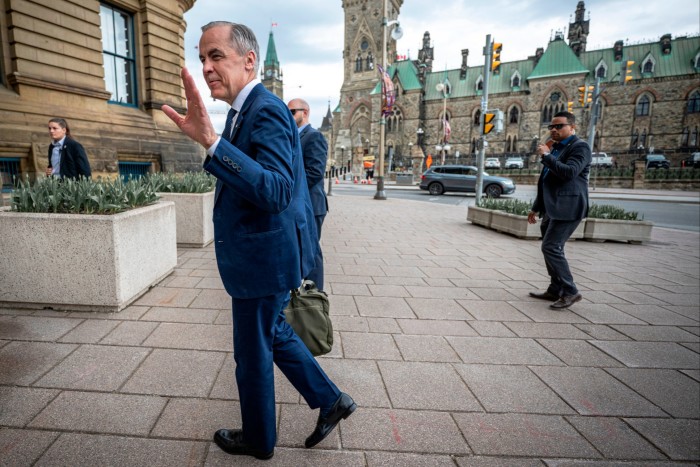
Arriving at the prime minister’s office for the first day of his new mandate, Mark Carney immediately faced the question on many Canadians’ minds: when would he speak to Donald Trump?
“We’ll see,” Carney told reporters with a smile, before bounding up the stairs to his office in Ottawa. In fact, Canada’s newly elected leader wasted no time. Carney and the US president spoke on the phone later on Tuesday and agreed to meet in person “in the near future”.
Starting a new dialogue with Trump is by far the most pressing task for Carney’s government.
The former central banker won the election on the back of Canadians’ resentment of American tariffs and Trump’s threats to their sovereignty. He told voters that the decades-long trade and security relationship with the US was “over”.
Now, he must turn to building a new relationship. One senior aide said the call with Trump was “cordial” and that Carney is focused on June’s G7 summit — which he will host in the Rocky Mountain town of Kananaskis — as a venue for face-to-face talks.
“We have the G7 so we cannot afford to wait,” the adviser said.
Carney will have to balance voters’ patriotic outrage, as many cancel trips to the US and boycott American goods, with his need to persuade Trump to strike a deal.
Industry chiefs were quick to urge Carney to frame the negotiations with the US as a review and extension of the US, Mexico and Canada Agreement — the North American free trade deal hammered out in the president’s first term.
“Business leaders in all three countries agree that the agreement must continue to serve as the central mechanism for governing trade and investment, resolving disputes and increasing continental competitiveness and productivity,” Goldy Hyder, chef executive of the Business Council of Canada, said on Tuesday.
Companies and investors hope that renegotiating the deal could break the cycle of tariff threats and short extensions. Hyder said the USMCA was the best framework “to restore the certainty, stability and predictability” of the C$1.3tn ($940bn) annual trading relationship.
Relations with the US remain fraught. As polls opened in Canada for Monday’s election, Trump had posted on Truth Social that Canadians should vote to become the 51st US state.
Tammy Bruce, US state department spokesperson, on Tuesday reiterated the justifications Trump had used to impose tariffs — issues on which he had hammered Carney’s predecessor, Justin Trudeau.
“We look forward to working with Prime Minister Carney’s government, particularly on key issues such as trade fairness, combating illegal immigration, halting the flow of fentanyl and other dangerous drugs and countering the Chinese Communist party influence in our hemisphere,” she said.
Carney’s election victory speech early on Tuesday morning outlined a plan to strengthen relations with “reliable partners” in Europe, Asia and the rest of the world.
“If the US no longer wants to be in the forefront of the global economy, Canada will. We are masters in our own home. We will build millions of housing units. We will become an energy superpower,” he said.
But despite the ambitious talk there are harsh economic realities. Canada is heavily reliant on American buyers for its exports, while America’s midwest oil refineries depend on Canada as the US’s biggest foreign oil supplier. Shipping oil and other resources elsewhere is far more expensive.
Carney will also have his work cut out for him with domestic politics. Final vote tallies on Tuesday afternoon confirmed he had won the largest number of seats — and the right to form a government — but fell just three seats short of a parliamentary majority.
He needs to strike a deal to secure parliamentary support, likely with the New Democratic party, which had supported Trudeau’s administration. The centre-left party’s support collapsed, and its leader, Jagmeet Singh, lost his seat. But their seven remaining members are enough to push legislation through parliament.
The Conservative party performed better than expected, gaining 7.6 per cent in the popular vote compared with its 2021 election performance — although its leader, Pierre Poilievre, lost his own seat.
Carney won the popular vote by only 2.4 per cent, having gained 11.1 per cent from the Liberals’ previous tally under Trudeau.
Carney will also need to announce a new cabinet, balancing Trudeau lieutenants such as foreign minister Mélanie Joly and trade minister Dominic LeBlanc with his rival for the leadership Chrystia Freeland, as well as new faces.
The new leader will face a chorus of demands for support from domestic industries such as carmaking, aluminium and steel, for whom American tariffs threaten widespread job losses or business closures.
Canada’s oil sector also wants make the most of the Trump hostilities by finding new buyers for export.
“Developing our world-class oil and natural gas resources to their full potential by growing our exports to international markets will strengthen our energy security and economic sovereignty,” said Lisa Baiton, chief executive of the Canadian Association of Petroleum Producers.
These could be difficult conversations for Carney, who has been a high-profile advocate of the “green transition”.
Despite being described as a political novice, who became an MP only on Monday, people who know Carney say he should not be underestimated.
Former Indian central bank governor Raghuram Rajan, who has known the new Canadian leader for two decades, said: “Carney is extremely capable, smart, and always well prepared.”
